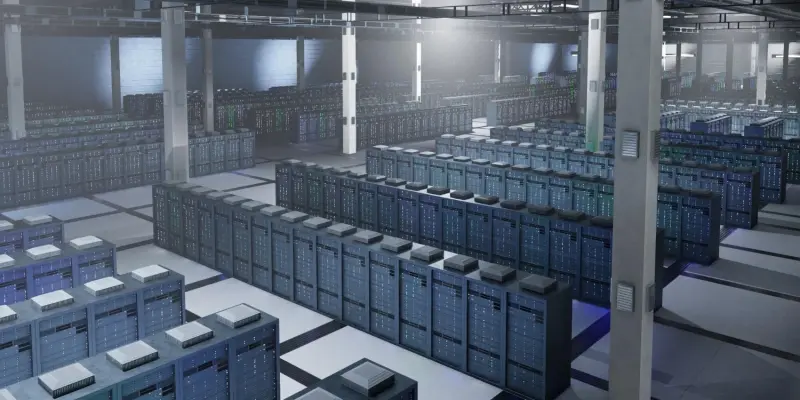Amazon Web Services (AWS), a major player in cloud infrastructure, is poised to significantly enhance its presence in Louisa County, Virginia, by developing a third data center campus within the Technology Overlay District. Covering an extensive area, this ambitious project will span up to 7.2 million square feet spread over 1,370 acres. Presently, the site earmarked for this massive expansion is zoned for agricultural use and is owned by the Purcell family through Fisher Chewning, LC. To transition to its intended use, AWS is in pursuit of a Conditional Use Permit (CUP), a crucial step requiring public approval. This process will involve community engagement through neighborhood meetings and public hearings with the county’s board, ensuring transparency and adherence to local governance.
Economic Impact and Investment
AWS’s investment strategy has been exemplary in Northern Virginia, significantly contributing to the region’s economic landscape. The establishment of the third campus aims to build upon this foundation, with investments making substantial economic ripples within the county. Having already committed $11 billion for projects through 2040, AWS plans to continue leveraging the region’s favorable conditions, which support extensive technology infrastructure. The new campus’s phased completion will invite investments of $330 million in property development and $670 million in equipment for each 250,000-square-foot section. If fully realized, the undertaking could represent an overwhelming $28.8 billion commitment. Moreover, the county stands to gain $4–5 million in annual gross tax revenue per 250,000 square feet, positioning the county for robust economic benefits.
In addition to economic augmentation, AWS’s strategic expansion in Virginia is linked to its advantageous infrastructure. The region’s framework fosters seamless connectivity hubs between Northern Virginia and Richmond, a critical tech corridor. The strategic decisions to proliferate within these territories underscore AWS’s dedication to intertwined growth within tech epicenters. Further cementing its place as a technology stalwart, AWS’s focus on property and equipment investment underscores its commitment to sustainability in growth, ensuring that economic benefits resonate with local communities.
Community Engagement and Project Details
Public involvement is a distinguishing aspect of AWS’s approach in bringing the data center campus project to fruition. The requirement to obtain a Conditional Use Permit mandates AWS to foster open communication and reciprocal engagement with the community. Public hearings and neighborhood meetings are essential in this participatory process, keeping residents informed and allowing them to contribute insights or voice concerns. Transparency in project communication augments AWS’s credibility, aligning developmental goals with those of the community and fostering resilience through cooperative efforts.
Concerning project specifics, AWS is cognizant of residential proximity, planning the project with reverence to existing settlements. Construction plans will comply with setback regulations, establishing a 300-foot buffer zone to shield residential areas. Despite these guidelines, AWS anticipates the least distance to neighboring homes to be approximately 850 feet, subject considerably to the proposed structure’s final approvals. Though details on power consumption and water usage remain undisclosed, the scale of planned substations suggests substantial utility requirements, reflecting on the project’s comprehensive utility needs aligned to sustain its expansive operations.
Conclusion
Amazon Web Services (AWS), recognized as a significant force in the cloud infrastructure domain, is set to extensively increase its footprint in Louisa County, Virginia. The company plans to establish a third data center campus within the Technology Overlay District, which will feature up to 7.2 million square feet of facilities on 1,370 acres. This ambitious development, located on agricultural land owned by the Purcell family via Fisher Chewning, LC, necessitates a shift in zoning through a Conditional Use Permit (CUP), demanding public consent. AWS aims to handle this transition with community engagement by hosting neighborhood meetings and public hearings with the county’s board. This approach ensures transparency and aligns with local governance procedures. The site’s transformation represents AWS’s commitment to expanding its infrastructure while collaborating closely with local communities to address any concerns and support regional development opportunities.

